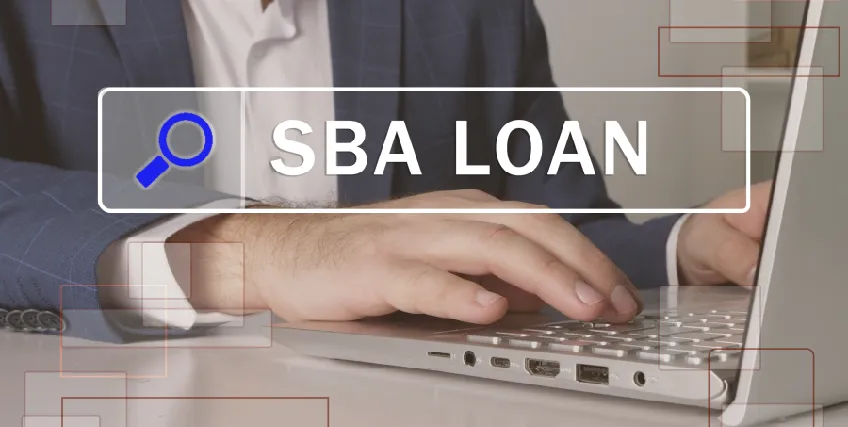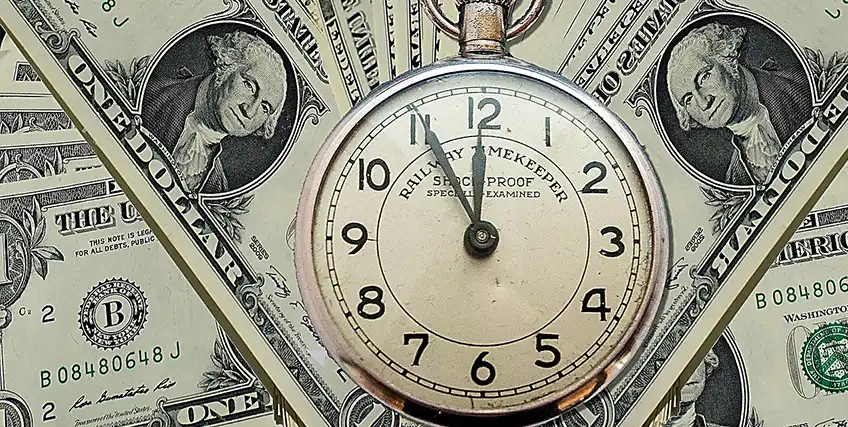Small Business Loan Programs for Companies in Florida
October 03, 2025 | Last Updated on: October 03, 2025

In this article:
- An overview of small business opportunities in Florida
- Small business loan options for Florida business owners
- Other financial resources and funding help in Florida
- Alternative loan options for Florida residents
An overview of small business opportunities in Florida
There are pros and cons to starting a business in any location. However, for entrepreneurs interested in setting up a shop in Florida, there are some enticing benefits that may outweigh any cons. According to a recent publication by Boostsuite:
- There are 2.5 million small businesses operating in the state of Florida.
- The success rate of startup companies and new businesses is 50.2% in Florida.
- Family-owned and operated small businesses support an average of 50% of Florida’s economy and are credited with 75% of new job opportunities.
One of the most attractive qualities for business owners in the sunshine state is the financial assistance designed to attract new businesses to Florida’s most populated cities, like Tallahassee, Jacksonville, Orlando, and Miami. In fact, Miami, Florida is ranked second in the nation on Biz2Credit’s list of Top 25 Small Business Cities in America. Those financial assistance programs, exclusive to Florida entrepreneurs, include grants, loans, and other financial services, all of which we’ll dive deeper into throughout this article.
Another advantage to owning a small business in Florida is the structure of the state’s tax laws. Florida was ranked number four on Business News Daily’s list of the ten best states for small business taxes. The ranking was determined based on the corporate, individual, sales, property, and unemployment tax rates. Small business owners that choose a sole proprietorship or limited liability company (LLC) benefit from overall reduced income tax expenses because individuals are not required to file state income tax returns in Florida.
Small business loan options for Florida business owners
While traditional financing options through lenders and federal programs are available to small business owners in every state, there are some unique Florida small business loan options. The following financing options are organized by state-sponsored loan programs and federal business resources.
Enterprise Florida Microfinance Guarantee Program
Florida-based business owners may be eligible to have their funding guaranteed by the Microfinance Guarantee Program through Enterprise Florida, Inc. The eligibility requirements of the loan guarantees require that the business has fewer than 25 employees and less than an average annual revenue of $1.5 million. Florida Enterprise, Inc. does not issue any loan funds but provides a guarantee of up to 50% for qualified business owners working with a participating lender. The agency will back small business loans up to $250,000 with repayment term lengths of three years or less. The guarantee of repayment by Florida Enterprise, Inc. allows entrepreneurs to access more funding options at lower interest rates even if they have not established a positive business credit history or lack the means to provide a large down payment, collateral, or personal guarantee.
SSBCI Loans
The Small Business Loan Support Program (SSBCI) is a program that was initiated and authorized by the U.S. Department of the Treasury in 2010 to provide federal funding assistance to small business owners in participating U.S. states. On March 11, 2021, the program was reauthorized and $10 billion was allocated to the program. Florida is one of the states that has been approved for federal funds to participate in the SSBCI Loan Participation Programs. The Florida SSBCI program offers loans to Community Development Financial Institutions (CDFIs) and Florida department lenders that have been approved to participate in the program. SSBCI loans can be issued for up to $5 million and allow repayment terms of up to five years. To be eligible for the SSBCI program in Florida, the business must employ fewer than 750 people.
Florida Black Business Loan Program
The Black Business Loan Program is an excellent funding option for some minority-owned businesses in Florida. The program provides loans, guarantees, and investments through one of the two predetermined Loan Administrators:
- Miami Bayside Foundation
- Florida A&M University Federal Credit Union
The assistance programs were designed to secure financing for black business owners that may not have access to traditional loan options due to location, creditworthiness, lack of time in business, or unapproved business plans. The program can help minority business owners secure up to $75,000, but require that the business is at least 51% black owned.
Other financial resources and funding help in Florida
In addition to the Florida loan programs listed above, the state gives business owners access to multiple financial assistance programs and resources. Some programs were created to help small business owners access federal funding, apply for grants, obtain venture capital, and share tax credit opportunities.
Miami-Dade County resources
Entrepreneurs that are interested in doing business in the Miami-Dade County area may be surprised to learn about the additional resources available to them. Since the Miami-Dade area has been designated one of Florida’s economic development priorities, there are local and state incentive programs created to attract new businesses to the area. The primary incentives offered through Miami-Dade County are listed below, but it is important to note that some of these programs apply to other areas in Florida as well.
- Economic Development Fund – A program with $75 million allocated to promote business expansion in five specific areas and an additional $15 million to help business owners in targeted urban areas and empowerment zones. The purpose of the allocated funds is to promote economic development and create high-impact jobs in select areas, including the Opa-Locka and Kendall-Tamiami Executive Airport areas, the Civic Center and Medical District, Port Miami, and the Homestead Air Reserve Base.
- Brownfields Program – The Florida Brownfields Redevelopment Program provides incentives, low-interest loans, and waived fees for small business owners that are interested in expanding into or already operating in a Brownfield, which is an abandoned, idled, or underused property that has been designated as a brownfield by the government. Small business owners can receive up to $2,500 per newly created job through this program.
- Targeted Jobs Incentive Fund (TJIF) – A program that provides cash incentives to Miami-Dade businesses that operate in certain industries and are considering an expansion that will promote job creation and require a capital investment.
- Urban Jobs Tax Credit Program – Florida-based business owners in one of the 12 approved program areas can earn a tax credit of up to $1,000 as an incentive to create jobs. New businesses are eligible for the credit if they are offering at least 20 full-time positions, and existing businesses can apply for the credit if they have at least 10 full-time employees.
Community Contribution Tax Credit Program
The Community Contribution Tax Credit Program has excellent small business resources for nonprofit or for-profit entrepreneurs in Florida. This program offers Florida business owners financial incentives in the form of a tax credit or sales tax refund. To be eligible for these funds, small business owners are encouraged to donate to community development or low-income housing projects.
Florida Venture Capital Program
The Florida Venture Capital Program is not a loan or tax credit program, but it is a program that works to connect Florida-based businesses with capital. Connecting with venture capital funds typically requires the small business owner to provide some equity in the company but can be a great resource for new business owners looking to find the right investor. The Florida Venture Capital program works with funds up to $3 million.
Small business grants in Florida
In addition to the small business loan options and other financial incentives, the abundance of grant providers is another reason many entrepreneurs choose Florida as home. The following list, from IncParadise, shares some of the more popular grants for Florida business owners.
- Prospera Small Business Grants – A nonprofit entity promoting business development through grants, training, and lending options. The programs are geared towards established small businesses and startup companies.
- Amber Grant – The Amber Grant Foundation is a Florida small business relief program for women entrepreneurs. The funding amounts can be monthly up to $10,000 or annually up to $25,000 and can be used for business expenses, expansion, or startup costs.
- National Association for the Self-Employed (NASE) – Awards grants up to $4,000 for small business owners and startup entrepreneurs in Florida. The purpose of the association is to promote business growth in the state.
- Florida High Tech Corridor Grant – A Florida grant program, available in 23 counties, that is designed to help small businesses scale their technical skills and commercial accomplishments. The grants provided can be for funding up to $250,000 annually for a single project.
Alternative loan options for Florida residents
We’ve established that there is no shortage of financial assistance programs for Florida business owners, but sometimes those programs aren’t available or simply can’t provide enough capital for your business plan. If you are looking for funding options in place of, or in addition to, the programs listed above, a small business loan may be the solution to meet your business needs. The following lending options are available through traditional lenders, like banks and credit unions, or alternative and online lenders, like Biz2Credit, which can provide fast funding options to small business owners in Florida.
SBA Loans
SBA Loans are a great financing option for Florida-based businesses. The funds are partially backed by the U.S. Small Business Administration, so SBA loan programs can provide small business owners with lower interest rates and smaller down payments than traditional types of loans. There are multiple SBA loan programs, including the SBA 7(a), Microloans, SBA 504, and disaster loan programs. The maximum loan amount for SBA loans depends on the type of loan and the borrowers’ creditworthiness. Typically funds from SBA loans can be used for large purchases, like equipment financing and commercial real estate, to supplement monthly cash flow, or any other business expenses, like payroll.
Business line of credit
A business line of credit is a type of revolving credit, like a business credit card. The borrower is approved for a maximum credit limit, and they can then draw on that credit line whenever they need access to fast funding. Lines of credit are great options for Florida entrepreneurs that need access to fast funds or are interested in building better business credit. The monthly payments include principal and interest, which are calculated on only the amount of funds withdrawn. As the balance is paid down, the borrower has access to the funds again without having to go through the application process again.
Term loan
Term loans are a type of small business financing where the borrower receives a lump sum of money upfront and makes regular payments of principal and interest over the term of the loan. Interest rates on term loans may be variable, which change according to the market rate, or fixed, which remain the same over the life of the loan. The repayment terms depend on the lender, the amount of loan, and the borrower’s creditworthiness and may reflect a short-term or long-term loan. Term loans provide Florida entrepreneurs with a great opportunity to meet their working capital needs while building business credit.
Bottom Line
Florida is a great state to start or continue your business operations because of its rapid business growth rate and business-friendly tax climate. There are many options available to meet the financing needs of small business owners in the state, including Florida small business loans, grant programs, financial assistance, tax credits, and even programs that work with Florida entrepreneurs to find venture capital.
If you are interested in finding more state and federal resources for a small business in Florida, check out the SBA’s Small Business Development Center (SBDC) website. If you are interested in learning more about other financing options, including small business loans, check out Biz2Credit. The financing specialists at Biz2Credit were able to help Lora Brown, a Florida businesswoman, with franchise financing for her Fantastic Sam’s hair salon.
FAQs
Is it hard to get a business loan in Florida?
A strong credit profile with a FICO Score above 670 and a business credit score exceeding 80 is typically required to obtain the best business loan interest rates. Improving your creditworthiness before applying can improve your chances of acquiring a competitive loan offer. However, if your credit could be better, consider exploring business loans tailored for borrowers with less-than-ideal credit.
What is the easiest SBA loan to get approved for?
SBA Express loan is one of the simplified options within the 7(a) loan program and provides the most effective application along with the approval process compared to other SBA loans. These loans offer easygoing repayment terms, extending up to 25 years for real estate acquisitions and ten years for working capital, equipment, or inventory purchases.
Is it hard to get a small business loan?
Banks normally offer competitive interest rates, long repayment terms, as well as large loan amounts. Bearing out a small-business loan from a bank can be challenging; however, if you’ve been in a company for less than two years, don’t have uniform revenue, or have fair, poor, or no credit. But for those who qualify for these parameters, it’s essential to remember that banks often need a detailed and lengthy application process, and funding times can be slow.
What disqualifies you from an SBA loan?
The most regular reasons SBA loans are denied are poor credit, too much-existing debt, or insufficient collateral. Additional reasons could also be prior bankruptcy—and negative taxable income.
What is the minimum down payment for a SBA loan?
SBA loans generally demand a down payment of at least 10% for 7(a) and 504 loans. Regardless, this amount can change depending on factors such as the business's cash flow and the value of its collateral. Businesses with weaker financial performance or less valuable assets may face a higher down payment requirement, potentially reaching up to 30% of the loan amount.




